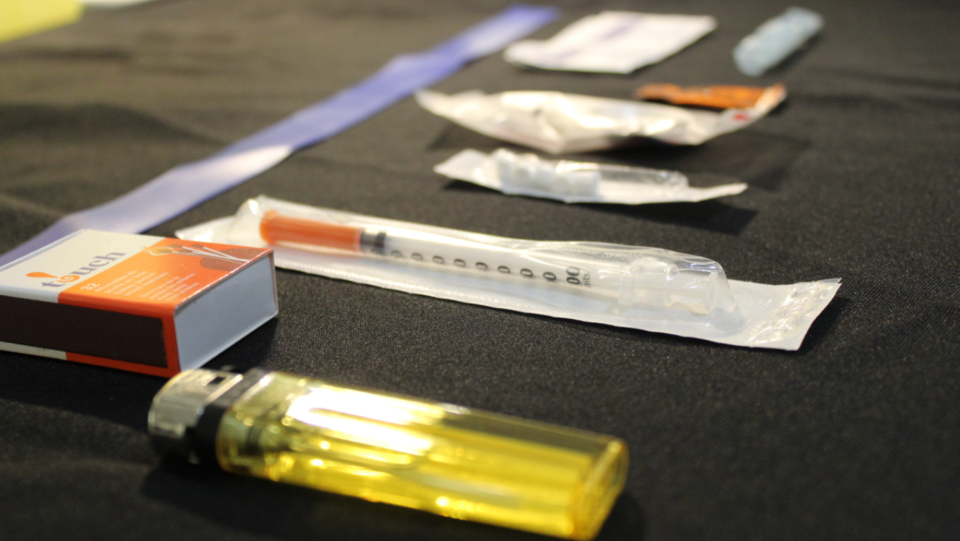Potential locations for a proposed safe consumption site (SCS) in Barrie have been narrowed down to five, but the list needs to be reduced even further before going to city council for possible approval.
All in the downtown area, the short-list locations for an SCS are 121 Wellington St. W., 110 Dunlop St. W., 31 Toronto St., 90 Mary St., and 11 Sophia St. W.
The list of possible locations is now being reviewed by a site-selection advisory committee, whose members will whittle it down to two or three spots. Those sites will then be the topic of community consultation through an online presentation, which is expected in the fall, before being presented to council.
Mia Brown, who manages the Simcoe Muskoka District Health Unit's substance use and injury prevention program, said that while emergency-room visits are down, overdose deaths are showing a “concerning trend.”
“We have seen emergency visits down during the pandemic, which is the case all around as people avoid hospitals for fear of COVID-19. But the death rate is at a scary trajectory,” Brown said.
“There have been 19 deaths in the first five months of this year, and there were 26 total for all of 2019," she noted. "That is very concerning.”
Brown says the trend “appears to have started prior to the pandemic,” and that the rate of emergency-department visits for opioid poisoning in Barrie, and within the Simcoe-Muskoka region, has been significantly higher than the provincial average for more than a decade.
Coun. Keenan Aylwin, whose ward includes Barrie's downtown, says there are two major public health crises happening in the country at the moment, including COVID-19 and opioid deaths.
Aylwin called the rate of overdose deaths “a political and moral failure," and added the time for action is now.
“A supervised consumption site is an essential public health service that we desperately need in Barrie," he said. "It’s incredibly unfortunate that Barrie city council rejected the previous proposal for a site."
The debate around an SCS has been going on for several months. Last summer, council called for more information before making any decisions.
"The research on supervised consumption sites suggests that many of the deaths from opioid overdose can likely be prevented with this service," Aylwin said. "We have to take responsibility for the failure to recognize this and the lives that have been lost as a result.”
While the local health unit doesn’t have statistics for the city of Barrie, it does have information pertaining to the entire region.
Preliminary data for Simcoe-Muskoka — from January to March 2020 — shows 23 opioid deaths among males in the region compared with five deaths among females. The majority of the local overdose deaths were people between 25 and 44 years old, including 14 of the 23 male fatalities and four of the five women who died.
Aylwin says he hopes his colleagues around the city council table will see the need for an SCS facility.
“It is my hope that Barrie city council will listen to the advice of public health officials who are calling for the creation of harm-reduction services like an SCS, just like we’ve listened to their expert advice on COVID-19 measures," he said. "The need to listen to public health experts is more apparent now than ever."
The ratio of male-to-female deaths so far in 2020 is higher than the provincial average and what was observed in Simcoe-Muskoka in 2019. The percentage of deaths among 25- to 44-year-olds is higher than last year, particularly for females, although the numbers in that subset are small.
Coun. Natalie Harris, who represents Ward 6, has been leading the charge to bring an addiction treatment centre for women to Barrie, which she says would be a helpful solution to the local problem.
Cornerstone to Recovery is a Newmarket-based organization that began in 2004 and whose mission is "focused on supporting those impacted by addiction achieve emotional, physical and spiritual wellness."
Harris says Cornerstone and its treatment model would work well in Barrie.
“It’s so important to have a women’s addiction treatment centre in Barrie, and everywhere, because there are often familial aspects that prevent women from seeking treatment," she said. "Most often, because they are the primary child-care provider.
“One of the goals of this centre is to complement women’s services already available in Barrie and address their child security needs by providing a model that will include the safety and wellness of the children," Harris added. "Cornerstone is a family- and community-based program, and we are hoping to have this in Barrie soon.”
Harris would like to see the $2-million, 10-bed treatment centre open later this year, but a location has not been determined.



